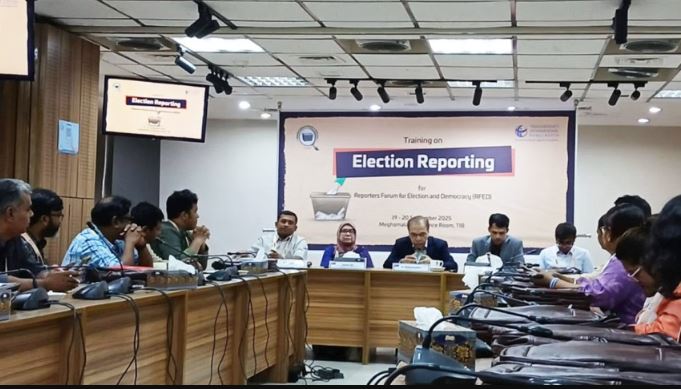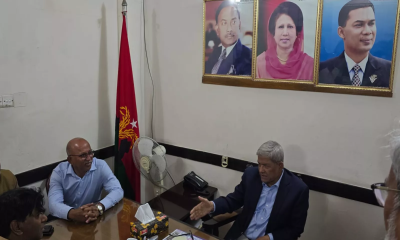A fair election will not be possible if the government acts with bias during the election period, said Iftekharuzzaman, member of the National Consensus Commission and Executive Director of Transparency International Bangladesh (TIB).
He made the remarks this morning at the inauguration of a training programme of the Election Reporting, organised jointly by the Reporters Forum for Election and Democracy (RFED) and TIB, in Dhaka`s Dhanmondi, reports The Daily Star.
Iftekharuzzaman said, "If political parties themselves do not want a fair election, it will be difficult to ensure neutrality. That is why it is essential to guarantee impartiality among election observers and journalists."
Pointing out that many individuals close to the ousted Awami League government still remain in the administration, he said, "It cannot be claimed that there are no agents or associates of the fallen government within the administration and law enforcement agencies."
He added, "By infrastructure, we mean good governance, accountability, transparency, honesty, and institutional integrity. These have been shaped over a long process -- not just over the past 16 years, but throughout nearly 54 years. Every institution has been politicised and brought under double layers of partisan influence, creating professional conflicts. Some of these institutions have been made functional at times, but in many cases, they have been rendered dysfunctional."
Referring to those long deprived of opportunities, he said that even when their positions were restored, politicisation persisted.
"There is no denying this reality. I do not believe that all members of the administration or law enforcement agencies are entirely biased. Some officials and staff are still making sincere efforts," he said.
According to him, the administration is moving forward amid the tension between these forces and will continue to play its role. However, he noted, this cannot be changed overnight nor can the entire administration be restructured from scratch.
"We must allow time for stability to develop and for a new kind of professionalism to emerge," he said.














-20260304091720.webp)






-20260303080739.webp)










-20260225072312.webp)





-20260228064648.jpg)
